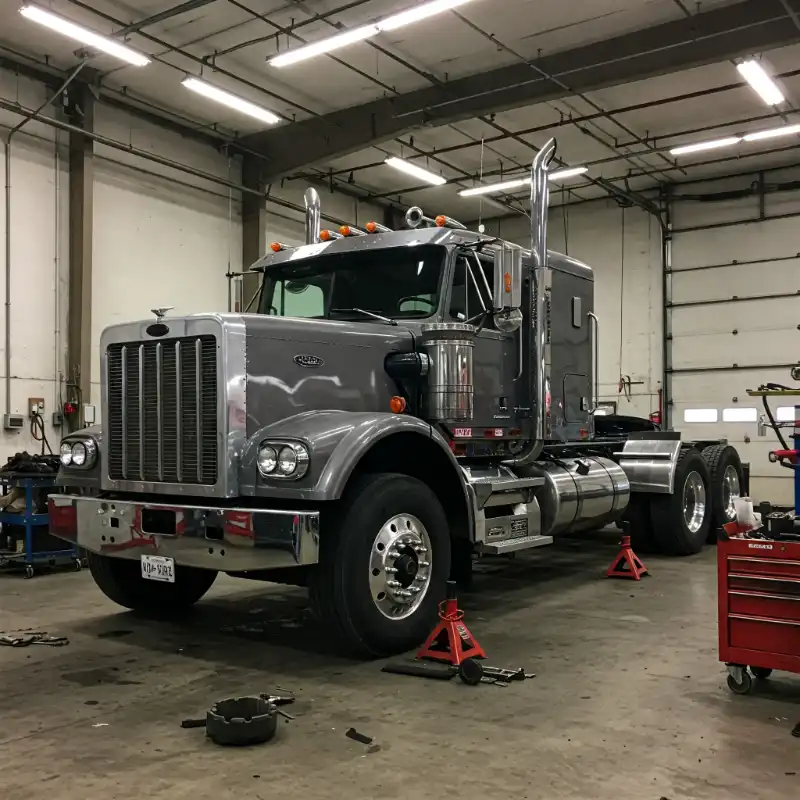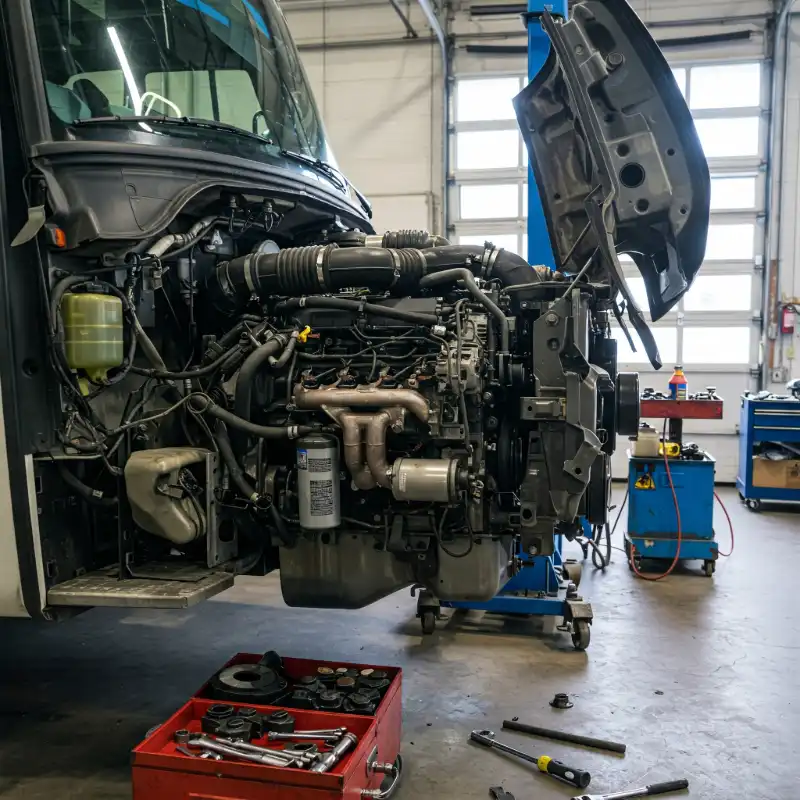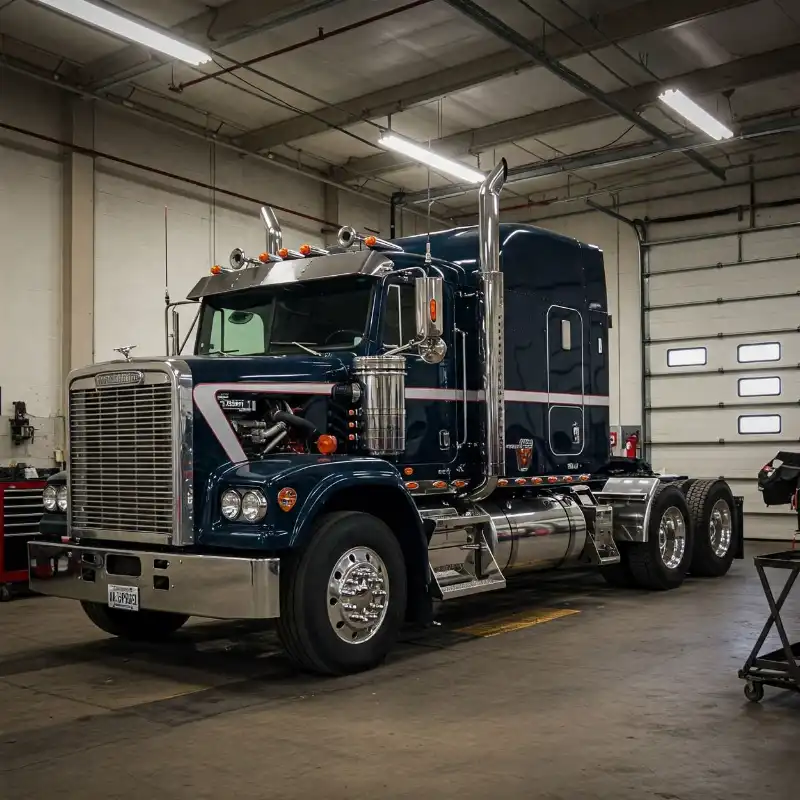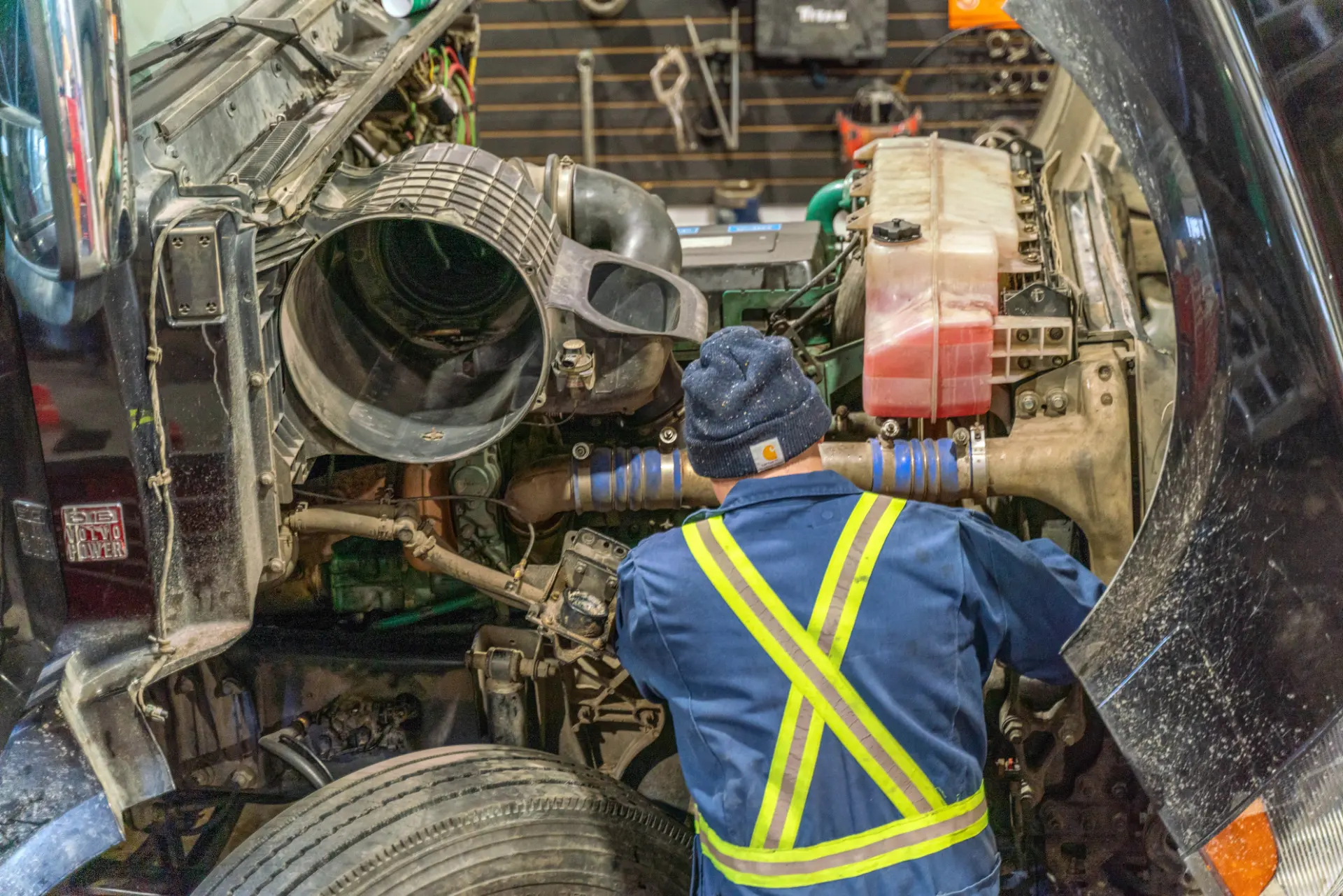The Role of Torque Converters in Heavy-Duty Truck Transmissions
Unlock the power of heavy-duty truck transmissions by delving into the role of torque converters. Learn their basics, how they differ from clutches, and their crucial role in managing heavy loads. Discover signs of issues, maintenance tips, and common misconceptions. Optimize your fleet's performanc

The torque converter stands as a pivotal component in the transmission system, playing a crucial role in heavy-duty trucks' performance. Essentially, it's a type of fluid coupling that allows the engine to spin somewhat independently of the transmission. Understanding torque converters is vital for heavy-duty truck operations and maintenance. This is because a well-functioning torque converter can significantly enhance the vehicle's efficiency, especially under heavy-duty truck conditions. For fleet managers, mechanics, and drivers, a grasp of how torque converters operate and their significance in the transmission system is key to ensuring the optimal performance and longevity of their trucks.
Basics of Torque Converters
A torque converter is a fluid coupling device that transfers rotating power from a prime mover, typically the engine, to a rotating driven load. It's an alternative to a mechanical clutch and plays a vital role in automatic transmission systems. The main components of a torque converter include the impeller, turbine, and stator. The impeller, connected to the engine, churns transmission fluid, which then flows to the turbine, connected to the transmission. This fluid transfer delivers power from the engine to the wheels. The stator, situated between the impeller and turbine, recirculates the fluid, enhancing the efficiency of the torque converter. The seamless transfer of power and multiplication of torque are fundamental to its working principle, making it a critical component in heavy-duty trucks.
Difference Between Torque Converters and Clutches
Torque converters and clutches serve a similar purpose but function differently. Clutches are mechanical devices that engage and disengage the power transmission, primarily used in manual transmissions. In contrast, torque converters in automatic transmissions provide a more fluid connection between the power source and the load. The key advantage of torque converters in heavy-duty truck transmissions lies in their ability to multiply torque when the output rotational speed is low, providing more power during initial acceleration. This feature is particularly beneficial for heavy-duty trucks that require significant power to move large loads, especially from a stationary position.
Role of Torque Converters in Heavy-Duty Trucks
In heavy-duty trucks, torque converters play a pivotal role in managing the demands of heavy loads and challenging driving conditions. They facilitate smooth acceleration from a standstill and offer a variable torque multiplication ratio that adjusts to the load of the truck. This adaptability is essential for trucks that frequently start and stop with heavy loads, as it reduces strain on the engine and transmission, thereby enhancing overall vehicle performance and durability. The torque converter's ability to isolate the engine from the load during idle or slow speeds also prevents engine stalling, which is crucial for operations in congested urban areas or tasks like towing, hauling, or steep-grade climbing.
Signs of Torque Converter Issues
Common signs of torque converter issues in heavy-duty trucks include slipping, shuddering, and irregular or delayed shifting. Slipping occurs when the converter fails to transfer enough power to the transmission, leading to a loss of acceleration and increased engine RPM without a corresponding increase in vehicle speed. Shuddering indicates a torque converter struggling to maintain a consistent fluid flow, causing a rough or jittery driving experience. Unusual noises, overheating, and transmission fluid contamination are also potential problems. These issues can significantly impact the performance of a heavy-duty truck, leading to decreased fuel efficiency, increased wear on transmission components, and potential breakdowns.
Maintaining and Servicing Torque Converters
Regular maintenance and servicing of torque converters are essential for the longevity and efficient performance of heavy-duty trucks. This includes routine checks of transmission fluid levels and quality, as the fluid is integral to the converter's operation. Periodic flushing and replacing of transmission fluid prevent contaminants that can impede the converter's function. It's also crucial to check for leaks and address them promptly. For optimal care, servicing should include an inspection of the converter for signs of wear or damage, particularly in trucks that frequently haul heavy loads or operate in harsh conditions. Regular maintenance not only extends the lifespan of the torque converter but also ensures the overall health of the truck's transmission system.
Common Misconceptions About Torque Converters
A common misconception about torque converters is that they significantly reduce fuel efficiency. While it's true that they can lead to some power loss compared to manual transmissions, modern torque converters are designed to be highly efficient and often include features like lock-up clutches to minimize this loss. Another myth is that torque converters always need replacement if there are transmission issues. In many cases, problems can be resolved with simpler repairs or servicing. Lastly, some believe torque converters are only suitable for light-duty vehicles, but they are crucial in heavy-duty trucks, providing the necessary torque multiplication and smooth power transfer under heavy loads.
Conclusion
Understanding the role and importance of torque converters in heavy-duty truck transmissions is crucial for optimal vehicle performance and longevity. Contact Fleetgo for regular maintenance and address issues that will prevent costly repairs and downtime. With the right care and knowledge, torque converters can significantly contribute to the smooth operation and reliability of heavy-duty trucks.
More Articles

5 Common Issues Found During CVIP Inspections in Edmonton

Spring Driving Prep: What Your Car Needs After Winter

The Biggest Fleet Repair Mistakes Business Owners Make
Contact FleetGo
Get in touch with Fleetgo today to request a quote or to schedule in-shop or mobile services in Edmonton & the surrounding area! Our mobile service extends to a 100km radius around Edmonton for emergency roadside assistance & mobile truck & fleet repairs, including Sherwood Park, Spruce Grove, Fort Saskatchewan, St. Albert, Stony Plain, along Highway 16, & more!



